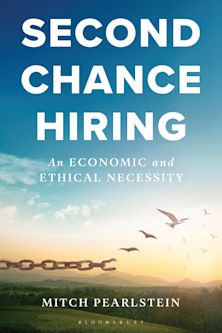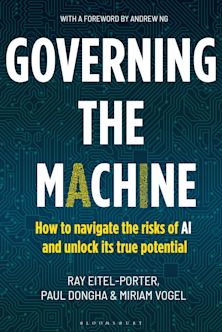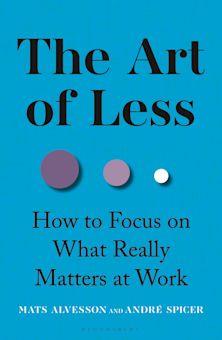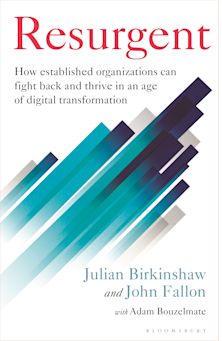- Home
- NON-FICTION
- Business, Economics & Management
- Business & Management - General
- Relational Change
Relational Change
The Art and Practice of Changing Organizations
Relational Change
The Art and Practice of Changing Organizations
- Delivery and returns info
-
Free UK delivery on orders £30 or over
You must sign in to add this item to your wishlist. Please sign in or create an account
Description
Learn about alternative ways of managing the change experience to make it doable, energising and transformative.
The process of change in all organizations - corporate, public sector and not-for-profit - can be fraught, overwhelming and unpredictable, both for those experiencing change and for those charged with its implementation. Relational Change presents a refreshingly readable and accessible alternative to the normal rhetoric of mechanistic, top-down change. Instead, Liz Wiggins and Harriet Hunter show how paying closer attention to personal interactions and relationships lies at the very heart of effective and sustainable change in organizations.
Exploring issues of power, politics, emotions and the way people and systems can become stuck in unhelpful patterns, this book will help you work practically with the messiness of change. The dynamic new ways discussed are highly relevant for life in organizations today and will apply to your life outside work too. Integrating research and theory from a wide range of sources, as well sharing their own extensive experience of leading change, the authors present a stimulating and thought-provoking people-centred and relational approach that focuses on doing with others, rather than doing to them.
Relational Change combines academically-grounded, theoretically-robust thinking that explains the rationale for relational change with real-world stories that will resonate with your own experience of change, whether as a seasoned or novice leader.
Table of Contents
Chapter 2: Seeing change differently: the art of choosing your approach
Chapter 3: The dynamics of relational change: to push or to pull?
Chapter 4: Organisational agility: working well with politics
Chapter 5: Symbolic acts and small gestures: recognising and shifting power dynamics
Chapter 6: Recognising and working well with emotions
Chapter 7: Re-imagining meetings: how to encourage dialogue and thinking together
Chapter 8: Working well with people 'in the moment'
Chapter 9: Working with stuckness and reframing resistance
Chapter 10: Sustaining yourself, others and change
Chapter 11: The ups and downs of change. Moira's story
Chapter 12: From toxicity to talking: creating connection through dialogue. Joe's story
Chapter 13: Involving people across the system. Emma's story
In Summary: what does a leader of relational change do in practice?
Product details
| Published | 15 Dec 2016 |
|---|---|
| Format | Hardback |
| Edition | 1st |
| Extent | 312 |
| ISBN | 9781472932679 |
| Imprint | Bloomsbury Business |
| Dimensions | 234 x 156 mm |
| Publisher | Bloomsbury Publishing |
About the contributors
Reviews
-
Engaging, clear, human, rigorous, enlivening… a must-read for people leading change in organizations.
George Binney, author of Living Leadership
-
We now finally have a handbook which appreciates the messiness of change, makes sense of it and teaches us to work with it.
Erik de Haan, Professor of Organisation Development at the VU University, Amsterdam
-
Relational Change is an eminently readable book, combining practical advice, just the right amount of untangling of change-management theory, and wise reflections on relevant real-life scenarios.
Michelle Jarrold, Development Director, Jarrold Retail Division
-
This book is helpful for managers and leaders. It's incredibly accessible and engaging with just the right balance between theory and practice for a busy manager. It's very readable, practical and relevant to a wide cross-section of leaders.
Chris Stirling, Site Director, Western General Hospital
-
Everyone working with transformational change can use this book as a provocative and supporting guide.
Philippa Hardman, Co-Founding Partner, GameShift
-
The authors invite us to pay attention to what is happening in organziation, both 'above and below the waterline', and to embrace change as a relational practice; happening one conversation at a time and between people.
Michele Martin, Organisational Development Practitioner, Barclays


































